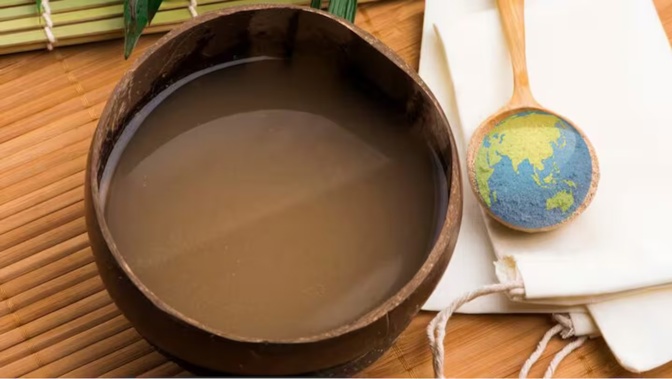
By Finau Fonua of RNZ
The commercial production of kava in the United States is causing concern among Pacific Islands kava exporters.
Last year alone, Vanuatu exported 351 tonnes of kava to the US. In 2020, Fiji’s Ministry of Trade reported over US$25 million of kava exports to America.
The US is a lucrative market for kava exporters in the region, but now at least three entrepreneurs in the US are known to be growing the cash crop.
Matt Masifilo, a Florida-based kava grower of Tongan descent, told RNZ Pacific the Pacific Islander diaspora in the US are sharing their cultural heritage.
He said the United States, like any Pacific Island nation, has its own unique kava culture; that being kava served in a pub setting.
“We drink kava the American way,” Masifilo said.
“Pacific Islanders, like my father, came over to the United States to find a better life … wherever Pacific Islanders go, they take their culture with them.”
Florida’s tropical wetlands offer ideal conditions for growing kava.
The state has been dubbed the kava capital of the United States, home to at least 75 kava bars, more than any other US state.
It is a fact that reflects a shift in the demographics of kava drinkers because Florida does not boast a large Pacific community compared with that of the West Coast states of California and Hawaii.

Florida-based kava grower Matt Masifilo says the Pacific Islander diaspora in the US are sharing their cultural heritage. Photo / Matt Masifilo
Kava bars are starting to open nationwide. This month, Massachusetts is set to welcome its first kava bar, Root Awakening.
“I’ve been drinking kava since 2016,” owner Penny Kmitt told CBS News during a tour of his establishment, which featured tiki heads and tanoa cups.
“[You] get a different feeling, not drunk or high, we get rooted,” he said.
Alternatives to alcohol
California-based kava bar owner Tyler Thomas told RNZ Pacific the demand for the drink is growing rapidly.
Tyler founded Root of Happiness in 2012, and said Americans were looking for alternatives to alcohol and other drugs.
“I discovered kava when looking for something that was relaxing, but also that was not damaging or addictive,” Thomas said.
“It’s a real treat man. It is a great alternative to other social lubricants”.
Wary of competition
In Fiji, Praveen Narayan is among dozens of exporters who sell kava cultivated by over 10,000 farmers — most of whom are smallholders farming less than a hectare of land.
“I think what they [US producers] are planning is still in a pilot stage. So there may be concern in five or 10 years if it becomes really successful,” Narayan said.
“It will take them years to master what has been done in the Pacific for the last 3000 years, so I am not too concerned with the Americans growing their own kava at the moment.
“The Americans love Fijian kava, they thrive on our kava … in the last 10 years, we have seen kava bars come up strongly in America and this has been an added bonus to Pacific exporters.”
On March 25, Fiji’s Prime Minister Sitiveni Rabuka addressed concerns about the potential competition posed by US-based kava plantations in an interview with the Fiji Times.

The commercial production of kava in the United States is causing concern among Pacific Islands kava exporters. Photo / Whakaata Māori
He said market protections were not in place for Fijian kava growers and exporters.
“Kava producers will just have to up their game,” Rabuka said.
“If Fiji and Pacific Islands kava producers want to retain or increase their customers, they must explore more downstream processing to extend the market beyond ‘custom’ consumers or Pacific Islanders.”
‘Impact on families’
But for others, the emergence of kava plantations in the US is an encroachment on the Pacific Island nations.
University of Waikato senior lecturer in health Dr Apo Aporosa said the economies of Pacific Island nations were being threatened.
“It’s going to affect export and it’s going to affect GDP,” he said.
“It is a no-win situation for the Pacific. Our leaders have to speak up.
“If the production of kava is industrialised in the US, this is going to have an impact on our Pacific families who are growing kava in their villages.”
He said that would affect kava farmers who rely on the small bit of money they get from selling kava that they use to pay school fees and to buy their household staples.
- RNZ
Take your Radio, Podcasts and Music with you









